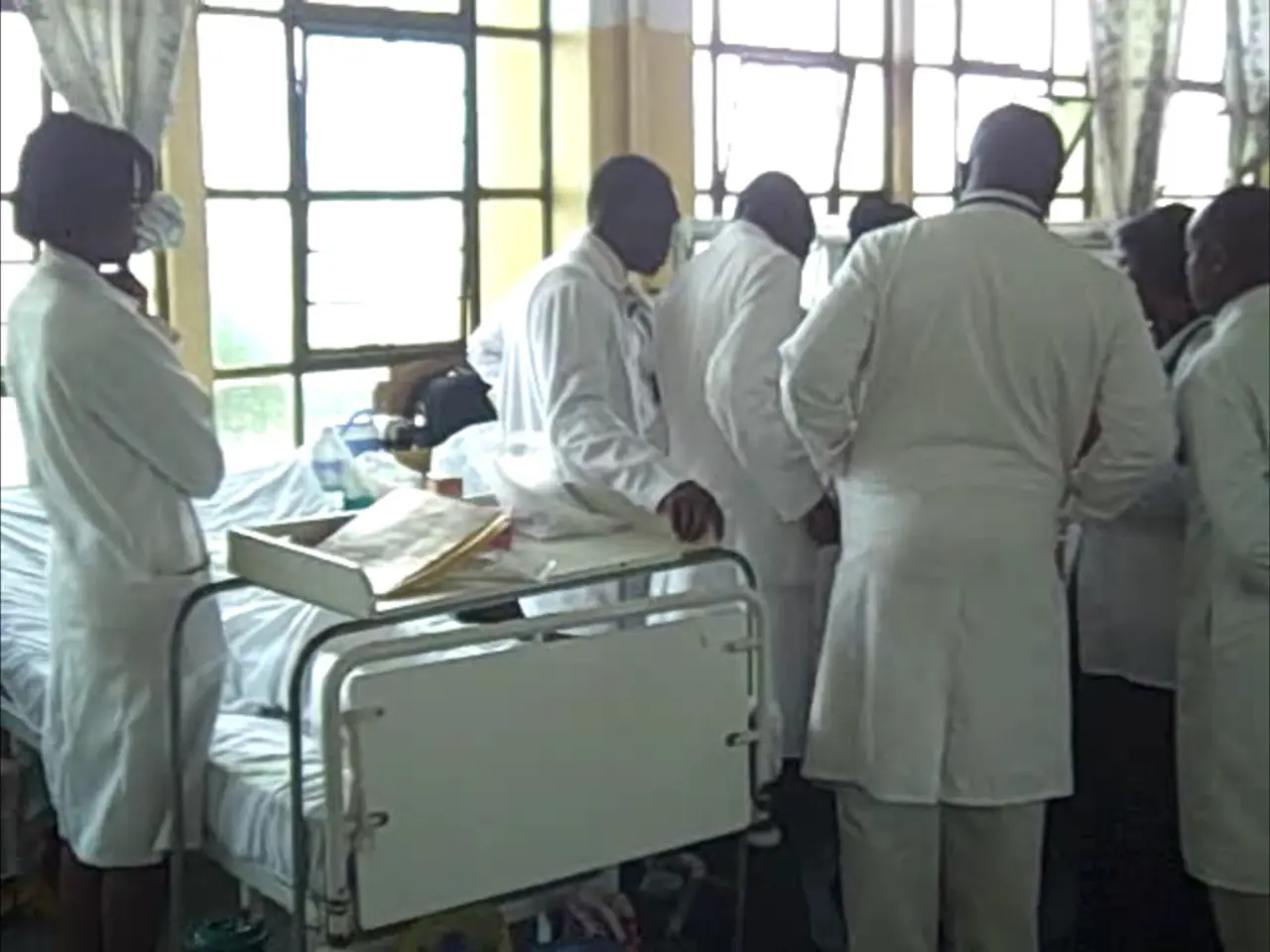Assessment: Insufficient medical student seats amidst physician scarcity - Shortage of Medical School Places Struggling to Meet Demand for Additional Physicians
In the complex and decentralized healthcare system of Germany, the uneven distribution of medical study places across federal states poses a significant challenge. This imbalance contributes to a localized physician shortage, which in turn leads to pressure on healthcare delivery in affected regions, compromising access and quality of medical care across the country.
According to a study conducted by the Center for Higher Education Development (CHE), there is a shortage of medical study places across federal states in Germany. This shortage makes it difficult for students to secure a place, even though medical studies are a popular subject among students.
The annual costs per person in the field of human medicine/health sciences are approximately 25,000 euros, as reported by the Federal Statistical Office. Despite numerous appeals, the number of medical study places has only slightly increased over the past nearly ten years, from around 9,000 to about 10,000.
Medical study places are concentrated in certain states with large university hospitals, causing fewer doctors to be trained in other regions. This uneven distribution limits the supply of new doctors entering local healthcare systems in less served states. As a result, many physicians tend to practice near where they study, creating a "sticky effect" that further exacerbates regional disparities.
The shortage of physicians leads to serious effects on medical care, including longer wait times for patients, reduced access to specialized care, and increased workloads for existing medical staff. Rural and underserved areas are particularly affected, facing difficulties in maintaining comprehensive healthcare services and ensuring timely patient treatment.
The operation of medical study places is costly for the states, but no new information about the costs or the benefits of states with more medical study places is provided. However, the study suggests that states with more medical study places benefit from better medical care.
Regions with medical faculties have a relatively high physician density, benefiting not only major cities like Hamburg, Berlin, Cologne/Bonn, or Munich, but also regions around universities in Heidelberg, Freiburg, or Lübeck. States with relatively good outlooks in terms of medical study places include Saxony-Anhalt, Hamburg, Hesse, and Berlin.
On the other hand, regions like Brandenburg and Bremen currently have no state-funded study offers for future physicians. At least 9,100 men and women from Germany are studying medicine abroad.
Efforts to modernize and digitalize healthcare systems, like those described under Germany’s Hospital Future Act, aim to improve efficiency but do not fully compensate for staff shortages. The concentration of medical research and education infrastructure tends to be higher in urban and wealthier states, while rural and economically weaker regions lag behind.
In the winter semester 2024/25, around 10,000 first-year students secured a medical study place at a university, while about 20,000 applicants were unsuccessful. Private universities with medical programs offer a total of around 1,500 places for new students each year.
As the healthcare system in Germany continues to evolve, addressing the imbalance in medical study places across federal states will be crucial in ensuring equitable access to quality medical care for all citizens. The newly founded Medical University of Lausitz, scheduled to start operations in the winter semester 2026/27, is a step in the right direction, but more needs to be done to address this pressing issue.
Read also:
- Crisis in a neighboring nation: immediate cheese withdrawal at Rewe & Co, resulting in two fatalities.
- United Kingdom Christians Voice Opposition to Assisted Dying Legislation
- Democrats are subtly dismantling the Affordable Care Act. Here's the breakdown
- Antisebum skincare products (cream, cleanser, and moisturizer) advocating for self-acceptance and skin confidence.







